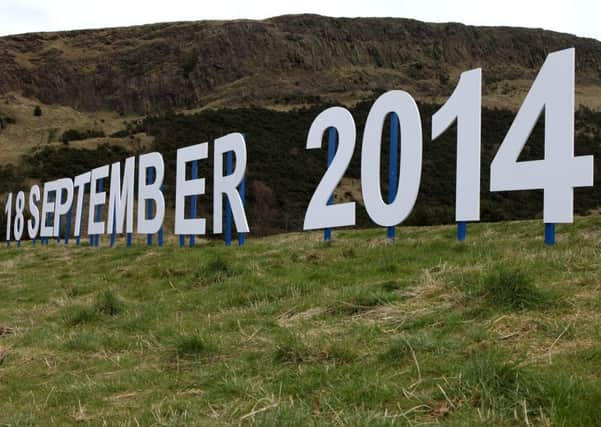Comment: Give us grown-up answers not cheap bribes


With just a month until Scotland goes to the polls, that figure is unlikely to have changed. Remarkably we’ve come this far with the potential implications of independence on our personal and household finances – positive or otherwise – having barely been addressed.
The currency skirmish has (rightly) returned to the front pages, but the discussion has rarely progressed beyond playground point scoring.
Advertisement
Hide AdAdvertisement
Hide AdScottish Labour last week claimed that independence would add £1,600 a year to the average homeowner’s mortgage repayments. This is based on the likely interest rate rise in the event of a formal currency union being vetoed. If that “estimate” is anything like the figures reeled off by the respective campaigns a few weeks ago then it’s meaningless. Back then, you might remember, the Treasury said that people in Scotland would each be better off by £1,400 if they voted against independence.
That figure was then branded as “bizarrely inaccurate” by the Professor responsible for the very analysis the calculations were based on.
The Scottish Government fared little better. It reckoned that each household would be better off by a suspiciously headline-friendly £2,000 within 15 years of Scotland being independent. Surely no-one will be taken in by the latest attempt at putting a price on a vote.
This is also an unfortunate diversion from the real financial questions that people want answered.
Many of those questions concern financial regulation and the future of the institutions that underpin our security, such as pensions. Take the pension protection fund (PPF), for example.
The PPF is the safety net that pays pensions to members of final salary schemes whose employer has gone bust. Nearly 18,000 people in Scotland rely on the PPF for their pension, while another 9,000 depend on the PPF-run Financial Assistance Scheme. They, understandably, want to feel confident that they won’t lose their protection.
What we do know is that the Scottish Government’s preference is to share the existing PPF. But whether or not the PPF is shared there are questions to be answered, not least as it’s funded by a levy on final salary schemes across the UK. How would that levy be divided up? Would Scottish companies have to pay higher levies? Would pension payments have to be cut? Precisely which schemes would fall under the jurisdiction of an independent Scotland?
The questions go on. Not all of them can be answered, of course, but there’s groundwork that can be done to give us a better idea of where we stand. Even that would seem over-optimistic, however. I’ve asked the Scottish Government on more than one occasion whether it has carried out analysis of Scotland’s PPF liabilities and how they might be treated post-independence, but I haven’t yet had a reply. It may well be that an independent Scotland could share the PPF without any adverse impact, but we don’t know and we have very little evidence with which to make a judgment.
Advertisement
Hide AdAdvertisement
Hide AdAll of this might sound a little technical, and it’s not exactly TV debate material, but it’s still the long-term financial well-being of thousands of Scottish pensioners that’s on the line.
The same applies to questions around the Financial Services Compensation Scheme, cross-border pension scheme funding and even state pension arrangements.
Definitive answers aren’t possible, given the great uncertainty around matters of currency, EU membership and so on. But that doesn’t deter the two sides from the cheap bribes that demean both the debate and the people of Scotland.